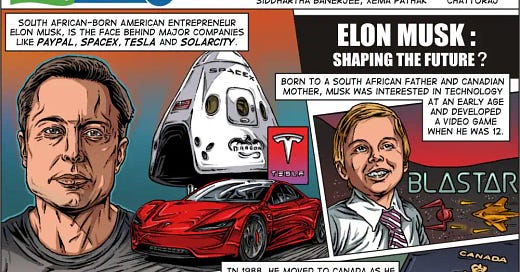He's a CEO by Day...
Why Elon Musk’s legacy tells a story of white supremacy, exploitation and a well groomed image.
Keep reading with a 7-day free trial
Subscribe to Her Issue to keep reading this post and get 7 days of free access to the full post archives.




